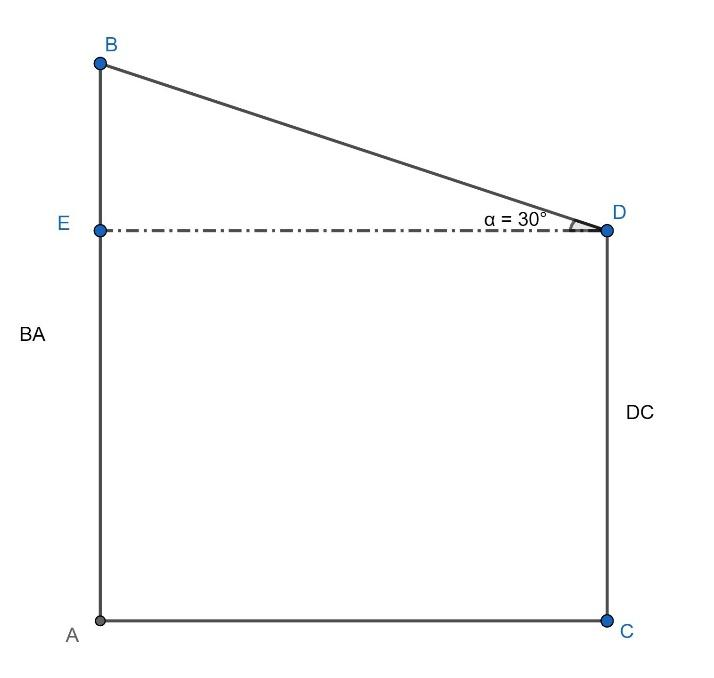Question
Question: The tops of two poles of height 16 m and 10 m are connected by a wire of length \(l\) metres. If the...
The tops of two poles of height 16 m and 10 m are connected by a wire of length l metres. If the wire makes an angle 300 with the horizontal, then length of wire is.
(a) 26 m
(b) 16 m
(c) 12 m
(d) 10 m
Solution
Hint: For solving this problem first we will draw the geometrical figure as per the given data. After that, we will use the basic formula of trigonometry sinθ=(length of the hypotenuse)(length of the perpendicular) and solve correctly to get the length of the wire easily.
Complete step-by-step answer:
Given:
It is given that the tops of two poles of height 16 m and 10 m are connected by a wire of length l metres. If the wire makes an angle 300 with the horizontal and we have to find the length of the wire.
Now, first, we will draw a geometrical figure as per the given data. For more clarity look at the figure given below:

In the above figure BA is the pole of length 16 m, DC is the pole of length 10 m, BD is equal to the length of the wire l and ED is the horizontal line so, as per the given data ∠BDE=300 .
Now, as BA and DC are vertical as the poles will be standing vertical to the ground so, length EA will be equal to the length of the DC. Then,
BA=BE+EA⇒BE=BA−EA⇒BE=BA−DC
Now, put the value of BA = 16 m and DC = 10 m in the above equation. Then,
BE=BA−DC⇒BE=16−10⇒BE=6 m
Now, from the above result, we can write that the length of BE will be 6 m.
Now, we consider ΔBDE in which ∠BED=900 , ∠BDE=300 and BE=6 m . Then,
sin(∠BDE)=(length of the hypotenuse BD)(length of the perpendicular BE)⇒sin300=BDBE⇒0.5=BD6⇒BD=12 m
Now, from the above result, we conclude that the length of BD will be 12 m.
Thus, the length of the wire l will be 12 m.
Hence, (c) is the correct option.
Note: Here, the student should first try to understand what is asked in the problem. After that, we should try to draw the geometrical figure as per the given data. Moreover, we should apply the basic formula of trigonometry properly without any error and avoid calculation mistakes while solving to get the correct answer.
